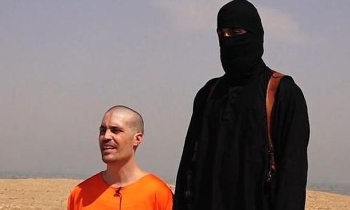WHEN IT comes to drugs, they used to say, speed kills.
When it comes to journalism, they still say, speed kills reputations.
In a horrible case in which journalistic prudence was spiked by the scramble to get the story first, the nation received the joyous news around midnight yesterday morning that 12 West Virginia miners had survived. In Philly, we went to sleep counting two victories - Penn State over Florida State, and the Sago miners over death.
We awoke to the mind-rocking shock that 11 miners had died, and one survived, the opposite of what was broadcast a few hours earlier - and printed in early editions of American newspapers, including this one.
A journalism cliche they also used to say warns, "If your mother says she loves you - check it out."
Journalists ignore this at their peril.
"Missed communication" led to the bad report, explained West Virginia Gov. Joe Manchin, who earlier told the Associated Press, "They told us they have 12 alive."
Apparently no one asked who "they" were, but in a press conference yesterday afternoon, International Coal Group CEO Ben Hatfield said that word had come from the mine rescue team below ground. Workers in the command center were told not to release information before it could be checked, but it got out and the media swallowed it before it could be properly checked.
This is arguably the biggest blown story since TV made Al Gore president in 2000. That screw-up was followed by solemn vows that solid journalistic practices - such as checking it out - would be followed in the future.
They weren't, at least not well enough.
However sloppy, the electronic media were not guilty of first elating, and then shattering, the hopes of the miners' families. Those poor souls got the false good news late Tuesday night from someone who arrived at the church where they were gathered.
They later got the grim truth from the mine CEO Hatfield - again, not from the media.
Hatfield said it took officials almost three hours to correct the story because they were grappling with conflicting information from below ground. This seemed like the civilian equivalent of the fog of war, as Hatfield told it yesterday.
By allowing bad information to circulate, he was the one who let the families down.
The media let everyone else down.
Most guilty were the electronic media - wire services, broadcast and cable networks - who sinned by racing with the story before making sure it was true.
One way journalists protect themselves against mistakes is by attributing information to authorities, but this itself is not foolproof. Reporters quiz elected officials, police and spokespersons because they are supposed to have the facts - and they can be held accountable. We know from experience - weapons of mass destruction, for instance - "authorities" can make mistakes.
As an example, the New York Times had Joe Thornton, deputy secretary for the West Virginia Department of Military Affairs and Public Safety, saying the rescued miners were being examined at the mine shortly before midnight. Gov. Manchin talked about miracles.
Both were wrong.
When the electronic media "broke the story" of the miners' being alive, they did it by talking to random people, unreliable sources offering hearsay and rumor. As far as I could tell early yesterday morning, TV had no authoritative sources.
This is what happens when the 24-hour news cycle collides with the cable networks' willingness to gullibly air almost anything. The fundamentals that reporters should have learned in Journalism 101 - check it out! verify! - go out the window.
The faster you go, the more danger of error.
There's another cliche journalists need to heed: Get it first, but first get it right. E-mail stubyko@phillynews.com or call 215-854-5977. For recent columns: http://go.philly.com/byko.









